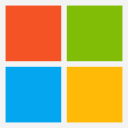Senior Software Engineer

Microsoft
Senior Software Engineer
The Sovereign Cloud team at M365 Core IDC is driving innovation in cloud infrastructure standardization, enabling secure, compliant, and scalable cloud solutions for regulated markets. Our mission is to deliver rapid, reliable, and standardized cloud buildouts, streamline deployment practices, and optimize runtime operations for Sovereign Clouds. As a software engineer on the Sovereign Cloud team, you'll have the opportunity to work on modernizing cloud buildouts and deployments at unprecedented scale, contribute to the evolution of standardized release platforms and compliance solutions, and develop AI-powered platform experiences that simplify complex operations. You'll collaborate with global teams across Azure, M365, and Enterprise Cloud, impacting foundational cloud services, and engage in continuous learning through knowledge sessions and hands-on experience.
As a Senior Software Engineer who collaborates with and guides appropriate internal and external stakeholders to determine and confirm customer/user requirements for a project/sub-section of a product/solution. Leads discussions for and owns the architecture of a product/solution and creates proposals for architecture. Identifies dependencies and incorporates them into the development of design documents for a product, application, service or platform. Leads by example within the team to produce extensible, maintainable, well-tested, secure, and performant code that adheres to design specifications. Leverages existing deployment frameworks to ensure efficiency. Drives efforts to integrate logging and instrumentation for gathering telemetry data on system behavior such as performance, reliability, availability, usage, and safety mechanisms, and for allowing monitoring and investigating security-related concerns and scenarios for both live and A/B experiments for products, services, and offerings. Drives efforts to ensure the correct processes are followed to achieve a high degree of security, privacy, safety, and accessibility. Applies best practices to build code based on well-established methods and secure design principles while also applying best practices for new code development and formal validation of security invariants. Works with partner teams to ensure a project/sub-system of a product works well with the components of the partner team before going live.
Required Skills:
- Agility: Ability to think, understand, and process information quickly.
- Algorithm Design and Implementation: The ability to design, analyze, implement, optimize, profile and experimentally evaluate computer algorithms. Includes knowledge of practical applications of algorithms in software engineering.
- Architecture Design: The ability to apply reference architecture and patterns for a variety of solutions (e.g., advanced analytics, artificial intelligence, big data, Internet of Things, modern business intelligence and analytics, modern applications, data platform modernization, data warehousing, business intelligence and analytics, etc.).
- Collaborative Innovation: Knowledge of others' expertise and the ability to involve multiple players (within and outside the organization) in the creation or development of novel products, processes, or research streams.
- Computer Science: The ability to apply computer science principles (e.g., data structures, algorithms, run-times), statistics and computer architecture to implement, adapt, or apply concepts when programming.
- Conflict Resolution: The ability to manage conflict, disharmony, and strife among people and situations, while recognizing and addressing sensitivities.
- Decision Making: The ability to make decisions in a fast-paced, rapidly changing environment. This includes the ability to define, diagnose, and determine an appropriate resolution, recommendation, or decision while considering alternatives and factors (e.g., resources, costs, tradeoffs).
- Design Readiness: The ability to deliver informed designs and plans ahead of production and execution. This includes the ability to ensure there is time for feedback and iterations for deadlines.
- Detail Oriented: The ability to attend to and verify the accuracy and completeness of detailed information in documents, on the computer, and/or in other work products. This includes being able to code, file, compile, transcribe, classify, and/or track details from a variety of different sources/problems/issues.
- Engineering Lifecycle: Knowledge of the engineering lifecycle that provides for task estimation, design and code review, specification review, bug triage, code check-in, sign-off, test targeting, and performance standards to meet customer and business goals.
- English Language Proficiency: The ability to speak and understand English when giving instructions and directions, and when talking with colleagues, managers, and others for work matters.